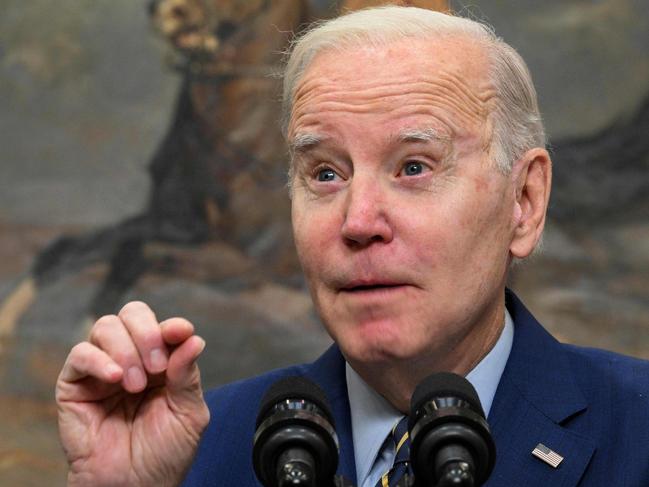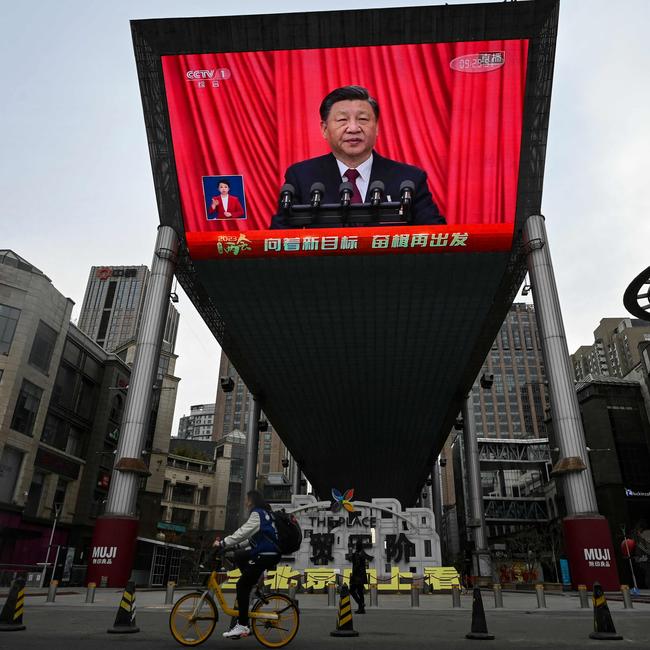Strategic Defence Review: AUKUS announcement by Anthony Albanese, Joe Biden and Rishi Sunak a ‘new dawn’


That was an understatement. This is a transformational moment, not just for Australia but for the world outlook.
Albanese, Sunak and US President Joe Biden are seeking to influence the trajectory of global competition for the next 50 years.
Albanese likened it to a “new dawn”.
Australia’s future strategic policy will now benefit from two key developments: the AUKUS partnership with the US and UK, and the revived Quad grouping with India, Japan and the US.

This has been clear for some time, but on Tuesday morning it will receive its most potent and public expression.
In a projection of unified strategic intent and military power, the three AUKUS leaders will together unveil a pathway for Australia to obtain a nuclear-powered submarine capability against the backdrop of American maritime might at the Point Loma Naval Base in San Diego.
It will be framed as win-win-win situation, with major security and economic benefits for all three members, but it will also present key logistical challenges.
In strategic terms, it is the most significant development for Australia since the signing of the ANZUS treaty in September 1951.
And there can be no going back.
Whether the future acquisition of nuclear submarines is beset by problems or stalled by wavering political conviction following the election over time of new leaders among the AUKUS grouping, Australia will have spent billions locking itself into a new strategic paradigm.

This paradigm is of course framed by a rising China, assumes geostrategic tensions will intensify and that their stakes will be high – not just in human and economic terms but in terms of who has the superior political system and approach to governing society.
This is something Sunak understands. Ahead of his bilateral meeting with Albanese, the British leader said China’s actions “show it is interested in reshaping the world order and that’s the crux of it”.
He warned that China posed an “epoch-defining systemic challenge” to the UK and its allies, noting that Beijing had “fundamentally different values to ours”.
And while AUKUS gives voice to this “epoch defining” contest and enmeshes more deeply the defence capabilities and
co-operation between Australia, the UK and the US, it inevitably risks fuelling the very conflict it seeks to deter.
Chinese President Xi Jinping used his speech to the National People’s Congress on the eve of the submarine announcement to prioritise the modernisation of Beijing’s armed forces, pledging to transform them “into a Great Wall of steel”.
Last week, he accused the US of pursuing the “all-round containment, encirclement and suppression” of China, while Foreign Minister Qin Gang warned of “conflict and confrontation” unless America changed course.
This presents a key diplomatic test for Albanese and that’s why AUKUS has not been the sole focus of his trip.
He is also working to tighten the strategic nexus between Australia and its key Quad partners – India and Japan – and arrived in San Diego direct
from New Delhi, where he promoted stronger security and economic co-operation with Prime Minister Narendra Modi.
In October, Albanese also struck a deal with Japan’s Prime Minister Fumio Kishida to strengthen intelligence sharing and enhance the interoperability of military capabilities with Tokyo to set the tone and direction of Australia-Japan relations for the coming decade.
Albanese’s challenge following Tuesday’s announcement is twofold. Firstly, to ensure that the pathway towards the acquisition of Australia’s new submarine capability will endure, can be delivered upon by his successors and that the hundreds of billions being spent are worth it.
Secondly, he needs to preserve and build on the AUKUS and Quad frameworks he inherited and ensure they remain robust and useful tools into the future for the long-term projection of Australia’s strategic interests.





On meeting Anthony Albanese in a San Diego restaurant ahead of the AUKUS announcement, British Prime Minister Rishi Sunak said it was an important day for Australia-UK relations.